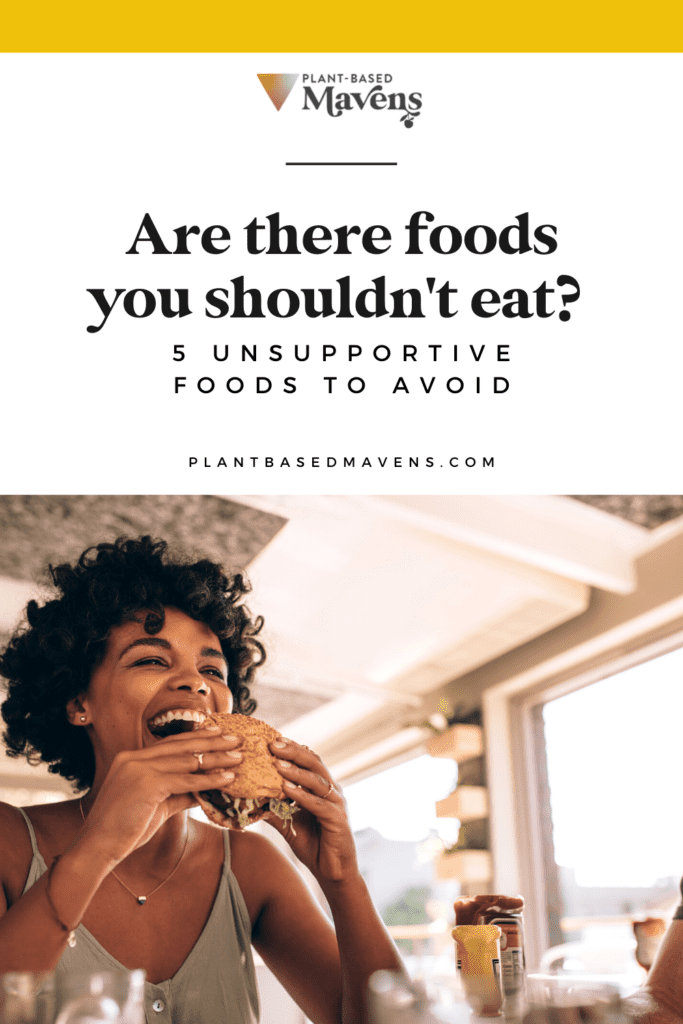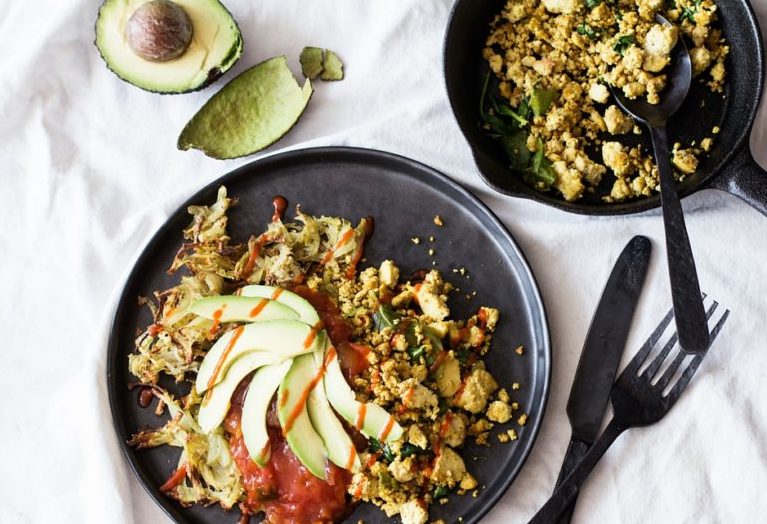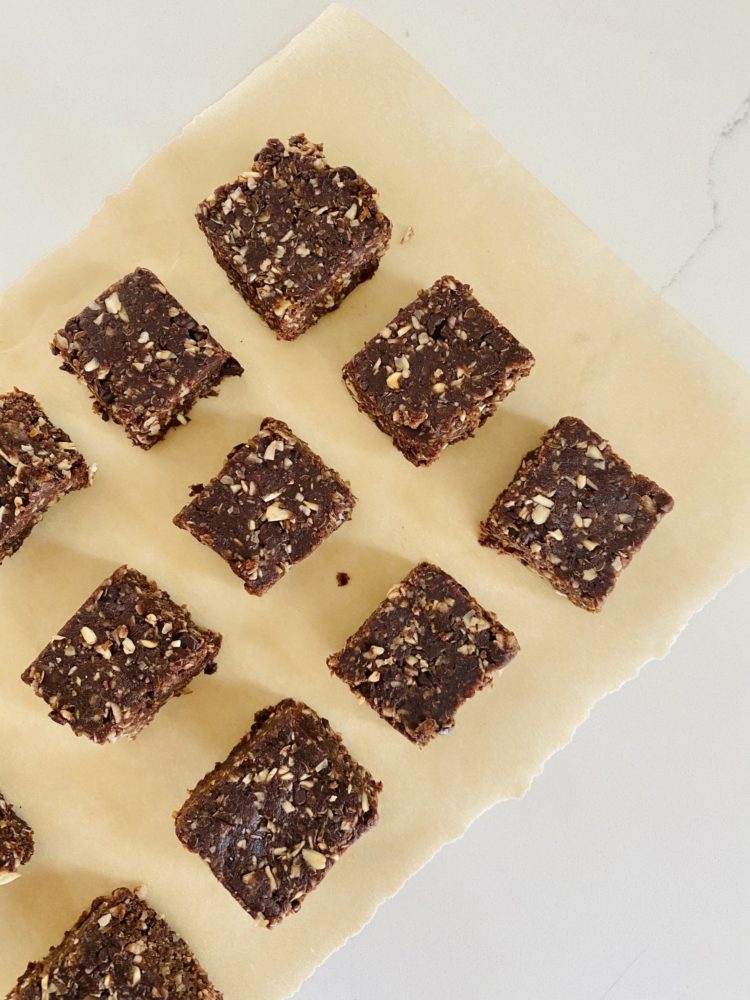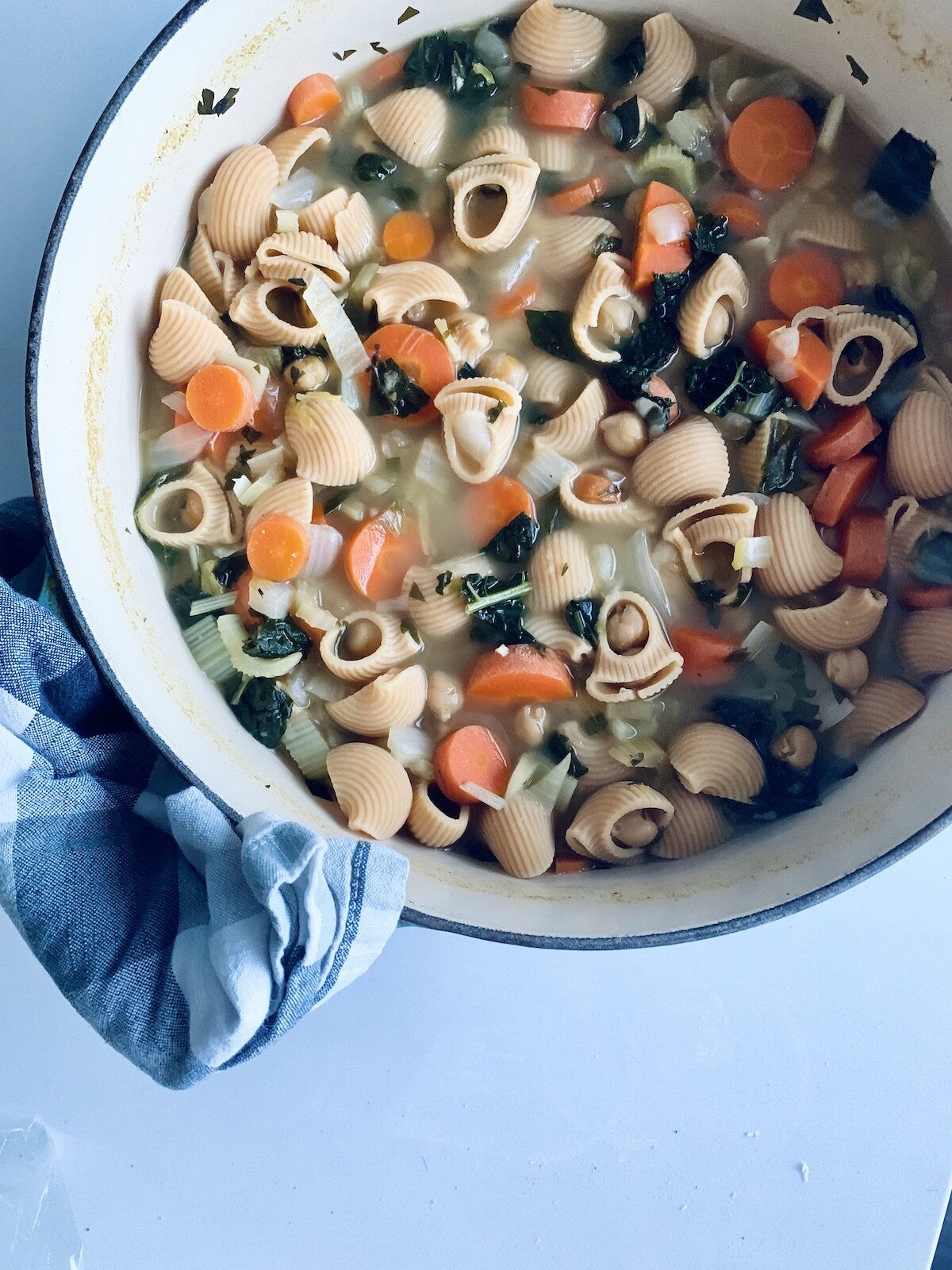As a dietitian, I often get asked what the are the unhealthiest foods to eat and which ones should foods should I avoid. Have you every wondered this? The answer to these questions is complicated, especially as someone who takes an intuitive eating approach with clients where no foods are objectively off limits.
While I’m not in favor of food rules, I am in favor of nutrition science. And based on research, we do know that over time certain foods can be damaging to your health. Instead of calling these foods the worst foods or unhealthiest foods to eat, I like to call them unsupportive foods because when you eat them frequently and repeatedly they can start to chip away at your health and wellness.
Remember, we want the choice to reduce unsupportive foods (and ingredients) to come from a place of self-care. If you currently eat some of these foods regularly, that’s okay! Be gentle with yourself, take a non-judgmental look at how often and how much you’re eating them, and think about how you might scale back over time.
A helpful way to nudge something out of your diet: replace it. Make simple swaps (like swapping soda for sparkling water) to help you move forward with self-care. Your health is shaped over time by the overall collective of your eating choices, lifestyle, and genetics and not by a single food or a single meal.

5 Unhealthiest Foods To Eat & How to Avoid
Avoid Ultra-Processed Foods
Ultra-processed foods are very heavily processed foods that are unrecognizable from any whole food. Artificial flavoring, preservatives, additives, fat, sugar, and salt are usually added. These foods are linked to many chronic health conditions and generally disconnect you from your hunger/fullness signals.
Examples of Ultra-Processed Foods:
- Soda
- Candy
- Many packaged snack foods (think Doritos and Cheez-its)
- Sweetened breakfast cereals
Avoid Trans Fat
Trans fat is an artificial fat made in a lab as an alternative to butter or lard. It significantly increases your risk for heart disease, so food manufacturers aren’t allowed to use trans fats anymore. However, small amounts are still found in some ultra-processed foods.
How to tell if a food contains trans fats: look for “partially hydrogenated oils” in the ingredient lists.
Avoid Processed Meats
Processed meats “have been transformed through salting, curing, fermentation, smoking, or other processes to enhance flavor or improve preservation.” These changes can lead to the formation of cancer-causing chemicals within the processed meat. In 2015, the World Health Organization labelled processed meats as known cancer-causing food.
Examples of Processed Meat:
- Deli meats
- Bacon
- Sausage
- Salami
- Hot dogs
- Beef jerky
Avoid Red Meat
Red meat makes the “foods to avoid” list because in that same 2015 report, the World Health Organization labelled red meat a probable cancer-causing food. It’s no secret that high consumption of red meat is not only linked to certain cancers, but also linked to higher risk of other chronic diseases.
If you rely on red meat to get your protein, check out this article on protein for women to learn more nourishing ways to meet your needs.
Avoid Food-based Environmental Toxins
This one isn’t exactly a food to avoid, but a category of substances to avoid that may find their way into your food. These substances include things like pesticides and herbicides that are sprayed on produce, chemicals like BPA that can leach into food from plastic containers or by heating food in plastic, and heavy metals that are frequently found in many varieties of seafood. Environmental toxins are linked to everything from reproductive health issues to sleep and mood disturbances.
The best way to limit your exposure to these toxins? Buy organic when you can, try to avoid heating food in plastic containers, and choose low-mercury fish if you eat fish.
Learn 7 ways to reduce your exposure to environmental toxins in this post.
How to practice intuitive eating and healthy eating together
If the idea of having a list of foods to avoid sends you into a dieting mindset, that’s a helpful clue that you could benefit from intuitive eating. Intuitive Eating teaches you the art of blending your preferences and desires with objective nutrition information about what supports our health. Grab my free intuitive eating video training to get started on a peaceful, easy relationship with food.


